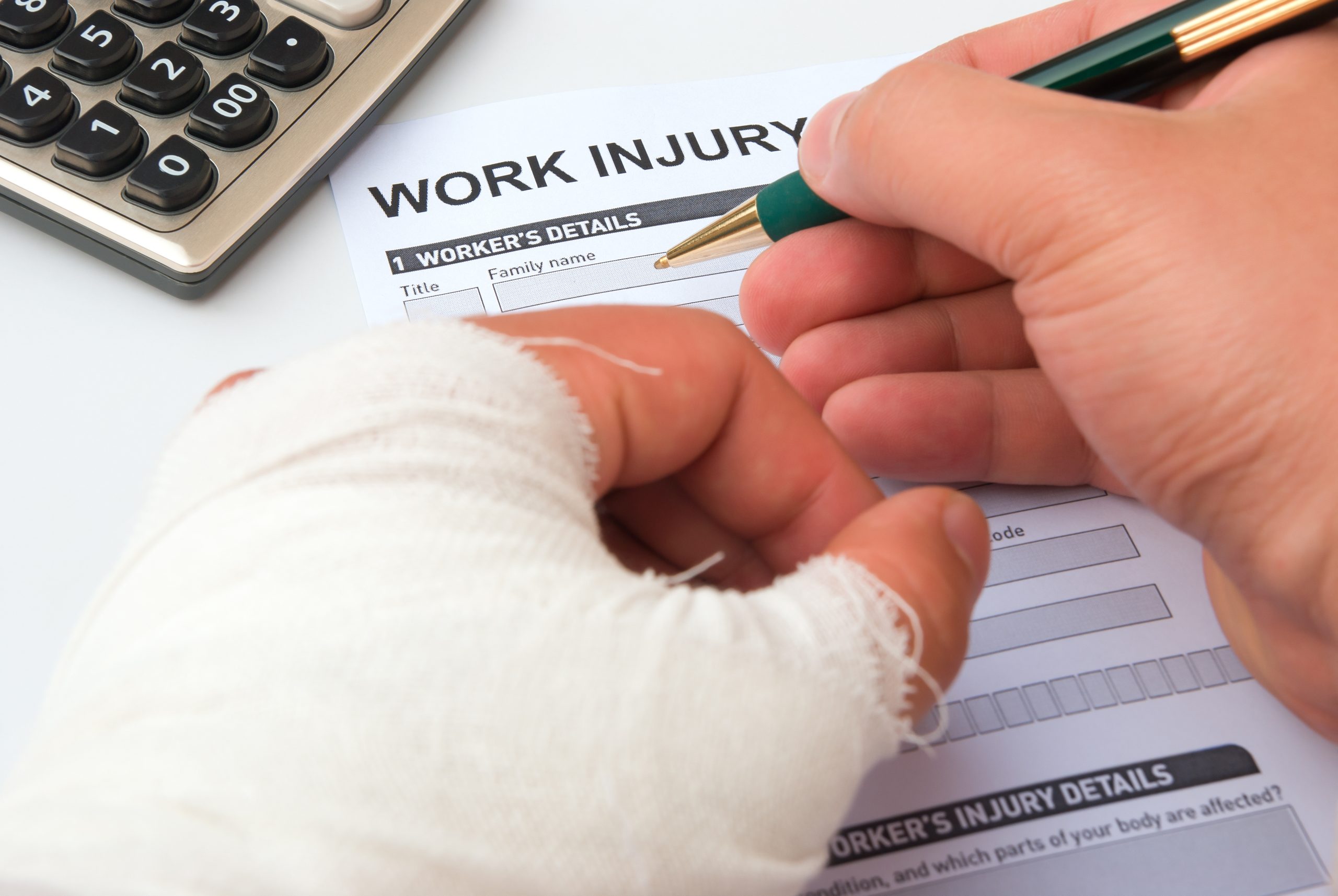Worker’s compensation is a system of insurance that provides financial and medical benefits to employees who suffer work-related injuries or illnesses. Workers compensation insurance is typically mandated by law and aims to protect both employers and employees by ensuring that injured workers receive necessary financial support and benefits while limiting the employer’s liability for workplace accidents. Your employer’s workers’ comp insurance policy will also generally pay death benefits to families of employees who suffer fatal work-related accidents.
Employers are responsible for shouldering the entire cost of coverage and cannot require their staff to contribute to workers’ comp insurance premiums. In addition, workers compensation follows a no-fault system, meaning the amount of benefit an employee receives is not impacted by their, or the company’s negligence, although certain situations may potentially void coverage.
Purpose and Benefits of Workers Compensation
Worker’s compensation is an important insurance program that offers several key advantages for both employees and employers.
For employees:
- Provides financial support and wage replacement for lost wages due to work-related injuries or illnesses
- Covers medical bills, treatment, and rehabilitation services to help employees recover from their injuries or illnesses
- Protects from potential job loss by offering job security
- Reduces litigation as workers compensation streamlines the process of resolving injury claims
For employers:
- Maintains legal compliance by adhering to local labor laws
- Reduces liability for workplace injuries or illnesses
- Enhances employee relations by demonstrating a commitment to employee well-being
- Encourages workplace safety incentives to pay reduced insurance premiums
- Provides better financial planning and risk management as workers compensation provides employers with predictable costs for handling workplace injuries
Types of Workplace Injuries Covered by Workers Compensation
While each workplace has its risks, there are a few common workplace injuries and illnesses that are covered by workers compensation. In the US, the Occupational Safety and Health Administration (OSHA) and the National Safety Council (NSC) list the following injuries as the most common:
- Muscle sprains, strains, and tears
- Bone fractures
- Cuts, lacerations, and punctures
- Repetitive strain or stress (RSIs), such as carpal tunnel, tendonitis, and back pain
- Slips, trips, and falls
Other covered injuries may include burns and scalds, transportation accidents, exposure to harmful substances, and psychological injuries caused by workplace stress, trauma, or harassment. In addition, there are common fatal incidents such as:
- Electrocution
- Getting crushed while stuck between objects
- Being struck by an object or piece of equipment
- Falling
What Does Workers Compensation Insurance Not Cover?
Not all injuries and illnesses that occur in the workplace are covered by workers compensation insurance. Some of the incidents excluded from such policies include:
- Injuries suffered while an employee is intoxicated or under the influence of prohibited substances
- Intentional or self-inflicted injuries
- Accidents that happen while an employee is on the way to or going home, from work
- Injuries sustained from recreational activities even if they occur in the job site
- Food poisoning that happens while the employee is on lunch break as breaks are often not considered work-related
What Situations Qualify for Workers Comp?
If your employer has workers comp insurance, any work-related injury or illness can qualify for benefits and reimbursement. Most policies allow for compensation regardless of who was at fault. Employees may receive workers compensation for chronic injuries and illnesses and those that happen suddenly. For example, an employee may receive compensation for a repetitive use injury, such as carpal tunnel. Workers comp also covers situations that occur in work-related contexts, such as during business travel or company events. If you are not sure if your illness or injury qualifies as work-related, ask your employer, or contact a workers compensation representative.
What Factors Impact the Amount of Workers Compensation Payouts Employees Receive?
The amount of compensation employees will receive for a job-related illness or injury depends on a range of factors, including:
- The type of illness or injury
- The severity of the illness or injury suffered
- The type of treatment required
- The employee’s salary
Workers can opt to get the payouts either as structured weekly or bi-weekly payments or as a lump sum. If an employee chooses a one-time payout, they are also essentially waiving their right to reopen the claim in the future. This means the employer is no longer responsible for shouldering the medical expenses if their illness or injury worsens. This is why many employees opt for structured payments, especially if they are not certain of the long-term effects of the injuries on their future lives.
What To Do If You Think You Have a Claim
Here are the first steps you should take if you are injured on the job:
- If you suffered a job-related injury, the first step is to report it to your supervisor immediately and in writing. This is crucial for your workers comp claim. Keep a copy of the report for your records.
- Seek medical treatment right away, even if the injury seems minor. Some severe injuries, like concussions, do not show symptoms immediately.
- Complete a claim form from your employer. No matter how your employer learns of the incident, they must immediately offer you a claim form. This claim form must be completed before the employer can provide benefits. Make sure the claim form is filled out entirely and precisely. Keep a copy of your completed claim form.
- Once your employer receives your claim form, they must notify its workers compensation insurance carrier immediately. They will then arrange medical assistance for you.
- File a claim with the workers compensation board. It would help if you did so quickly. Any delay on your part could lead to potential snags or delays in receiving benefits. This process can be complex and time-consuming, but it is necessary to receive your benefits.
Illness or injuries caused at work can be challenging to navigate. Knowing what workers comp is, if you qualify for it, and how it works in your state can be helpful. You can find specific information about your state’s workers compensation policies on the U.S. Department of Labor site.



